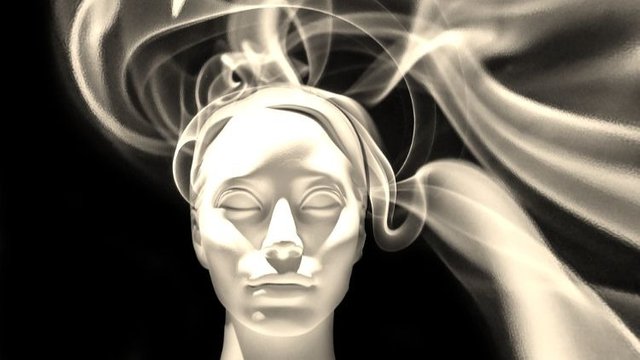Treating Depression with Mindfulness-Based Cognitive Therapy
Brief Introduction to Depression
.jpg)
Major Depressive Disorder (MDD), commonly referred to simply as “depression,” is characterized by persistent low mood states and a general lack of interest in pleasurable activities for a period of at least two weeks. It is also often accompanied by symptoms of alterations in appetite, low energy, sleep disturbances, limited motivation, feelings of worthlessness, guilt, and low self-esteem, and sometimes thoughts of suicide among others. Individuals with the disorder tend to be greatly affected by even small shifts in negative mood states, which increases their likelihood of experiencing relapse into depression. Individuals with MDD also tend to engage in habitual patterns of negative ruminative thinking about the self and the world, both of which are believed to create and perpetuate depressive states as well as increase the likelihood of them occurring in the future. Rates of relapse have been estimated to be as high as 70-80% among this particular demographic.
Though there are many therapy models used to treat individuals with depression, this article will focus on Mindfulness-Based Cognitive Therapy, which is a 3rd wave counseling model that as the name suggests, combines Cognitive Therapy (CT) with mindfulness.
Mindfulness-Based Cognitive Behavioral Therapy
.jpg)
Mindfulness based cognitive therapy (MBCT) was developed in the 1990’s by Zindel Segal, Mark Williams and John Teasdale as an intervention to prevent relapse among individuals diagnosed with MDD. The model consists of an eight week program that incorporates elements of mindfulness-based stress reduction (MBSR) and (CT). It is generally taught in a classroom setting and is meant to be highly experiential, with participants spending a significant amount of time engaging in mindfulness based exercises, both in the classroom as well as at home. The model is meant to reduce the likelihood of depressive relapse by helping individuals become more aware of the internal thoughts, feelings and bodily sensations that tend to perpetuate negative mood states. It is also meant to help individuals develop meta-cognitive skills for regulating distressing thoughts and emotions. Through awareness and the implementation of these skills, participants create new relationships and perspectives towards their symptoms which may help them cope with them in the moment.
Research on MBCT suggests that the model is efficient and effective at preventing relapse as well as increasing participant’s well-being and overall mood states. MBCT was found to reduce relapse rates by 77% as well as increase the amount of time to relapse. It was also found to be as effective as at preventing relapse as antidepressant maintenance medication and cognitive therapy. Lastly, MBCT has been found to reduce participant’s tendencies to engage in ruminative thinking and increase their ability to disengage from their negative thinking patterns, both of which have been shown to be strong influencers on relapse.
What follows is a look at some of the specific concepts and philosophies of the MBCT model.
Mindfulness
.jpg)
Many philosophies around the world incorporate some form of mindfulness into their practice and though there are many definitions of what mindfulness is, the one that is mostly cited in the Western medical society comes from Jon Kabat-Zinn, which he describes as follows:
“Mindfulness means paying attention in a particular way: on purpose, in the present moment, and non-judgmentally.”
Through the practice of mindfulness, (i.e. focusing one’s attention on the thoughts, feelings and bodily sensations occurring in the present) individuals can become highly aware of the internal processes that lead to negative mood states within them. Over time and with practice, the individual learns to be more aware of themselves and to take note of any signs of distress as they arise. They are encouraged to view any negative thoughts and feelings from a place of non-judgement, acceptance and self-compassion rather than taking the usual approach of trying to avoid them or stop them altogether. Eventually the individual may come to realize that negative thoughts and feelings are simply passing events of the mind and body, as opposed to reflections of reality or true aspects of the self and the world.
Automatic Pilot
.jpg)
“Automatic pilot” is a natural reactive state of living. It is the tendency of an individual to lack awareness in what they are doing in the present moment, which causes them to react mechanically, without intention to situations as they arise. For instance, when driving a car or riding a bike, it is generally common for an individual to be unaware of what their body is doing as they travel through the streets. Similarly, people often do not pay attention to the act of chewing or swallowing when they eat. While doing ordinary mundane tasks, the individuals mind is often elsewhere, thinking about other things. Similarly, individuals tend to lack an awareness of their thoughts as they occur in the moment. The mind generally, wanders and moves on its own without the individual intending it to do so. It is only several moments after the thought occurs, that the individual becomes aware that they were thinking.
Automatic pilot influences depressive relapse by allowing an individual’s negative thinking patterns to occur automatically, and for them to go unnoticed until after they have had an effect on the individual’s mood state. With this in mind, one of the main tenants of MBCT is that through practice, an individual can learn to step out of automatic pilot, thereby recognizing their own patterns of thinking and feeling as they occur.
Rumination and Decentering
.jpg)
Rumination is passive and repetitive thinking about the self and the world and is believed to be one of the main mechanisms that create and sustain depressive mood states among individuals. Rumination may come in the form of brooding about past failures or catastrophizing worries about the future. Often individuals with depression will ruminate on ideas that cause them distress (ex. “I am worthless”) or on their own symptoms of feeling negative. They also often try to analyze the possible causes and/or consequences of why they feel a certain way.
The behavior of ruminative thinking often leads individuals to become enmeshed or infused with their thoughts making it difficult for the individual to disengage from them. As such, the individual often believes that their thoughts are reality or that they are telling them an important truth about themselves and/or the world around them. Interestingly though, many people with depression tend to have similar thoughts about the self and the world which suggests that negative ruminative thinking is not a character trait of the individual, but rather a symptom of depression, just as coughing or sneezing is a symptom of the common cold.
One of the main focal points of MBCT is the idea of decentering, which is described as a recognition that internal thoughts and feelings are not true reflections of the self, but rather they are temporary events of the mind that will eventually pass. Throughout the MBCT program, participants learn to observe their internal processes from a place of non-judgement and non-attachment allowing them to accept, distance themselves, and let go of the ones that are unhelpful. This also reduces the likelihood that the individual will react automatically towards them. As such, participants in the MBCT program spend a lot of time learning to recognize their patterns of thinking, feeling and behaving so that they can decenter from those that are unhelpful.
Thoughts are not Facts
.jpg)
Another principle of MBCT is the idea that thoughts are not facts. For instance, despite an individual’s thoughts having a significant influence on their behavior and how they feel, the thoughts themselves are not reality. Similarly, an individual’s thoughts do not necessarily represent who they are. Thoughts are just thoughts.
It is the way in which the individual relates and interacts with their thoughts that creates distress. As such, it is important for the individual to recognize their patterns of thinking as this will eventually allow them to develop different relationships to their thoughts.
In recognizing that negative thoughts are just a pattern, an individual may come to view their thoughts as a track on an album. For instance, they may recognize an oncoming thought pattern and think to themselves “Ahh yes, this is the ‘I’m worthless track” or perhaps the “It’s never going to end,” track.
Instead of believing that the thoughts are important facts about the self that the individual has no control over, they may learn to view them as a habitual patterns and an inaccurate tape that will eventually pass on its own.
Conclusion
.jpg)
Depression is a complex mental health disorder that can be challenging to treat. Individuals whom have come out of a depressive episode tend to be highly susceptible to relapse back into depressive states. This is believed to be due in part to patterns of negative ruminative thinking which are characteristic of the disorder. Though ruminative thinking is common among individuals with depression, research suggests that this type behavior is not a character trait of the individual but rather a symptom of depression. Mindfulness-Based Cognitive Therapy was developed to help prevent depressive relapse among individuals with depression by helping them recognize their own patterns of thinking and feeling. Research on the modality suggests that it is effective at preventing relapse, so for educational purposes, this article provides a brief overview of the MBCT model.
Thanks for Reading
Academic References:
Bieling, P. J., Bloch, R. T., Corcoran, K. M., Hawley, L.L., Levitan, R. D., MacQueen, G. M.,…Segal, Z. V. (2012). Treatment-specific changes in decentering following mindfulness-based cognitive therapy verses antidepressant medication or placebo for prevention of depressive relapse. Journal of Consulting and Clinical Psychology, 80(3), 365-372. DOI: 10.1037/a0027483.
Crane, R. (2009). Underpinned by the cognitive theory of vulnerability to depression.
Mindfulness-Based Cognitive Therapy: Distinctive features, (pp. 9-13). New York, NY: Routledge.
Farb, N., Anderson, A., Ravindran, A., Hawley, L., Irving, J., Mancuso, E.,…Seagal, Z. V.
(2017). Prevention of relapse/recurrence in major depressive disorder with either mindfulness-based cognitive therapy or cognitive therapy. Journal of Consulting and Clinical Psychology, 28(2), 200-204. DOI: 10.1037/ccp0000266.
Fjorback, L. O., Arendt, M., Ørnbøl, E., Fink, P., & Walach, H. (2011). Mindfulness-based
Stress reduction and mindfulness-based cognitive therapy – a systematic review of randomized controlled trials. Acta Psychiatrica Scandinavica, 124(2), 102-2019. DOI: 10.1111/j.1600-0447.2011.01704.x.
Godfrin, K. A., & van Heeringen, C. (2010). The effects of mindfulness-based cognitive
therapy on recurrence of depressive episodes, mental health and quality of life: a randomized controlled study. Behaviour Research and Therapy, 48(8), 738-746. DOI: 10.1016/j.brat.2010.04.006.
Kabat-Zinn, J. (1990). Full catastrophic living: Using the wisdom of your body and mind to
face stress, pain, and illness. (Ch. 2. Pp. 31-46). New York, NY: Dell
Kuyken, W., Watkins, E., Holden, E., White, K., Taylor, R. S., Byford, S.,…Dalgleish, T.
(2010). How does mindfulness-based cognitive therapy work? Behaviour Research and Therapy, 48(11), 1105-1112. DOI: 10.1016/j.brat.2010.08.003.
Mackenzie, M. B. & Kocovski, N. L. (2016). Mindfulness-based cognitive therapy for
depression: trends and developments. Psychology Research and Behavior Management, 9, 125-132. DOI: 10.2147/PRBM.S63949.
Michalak, J., Holz, A., & Teismann, T. (2011). Rumination as a predictor of relapse in
mindfulness-based cognitive therapy for depression. Psychology and Psychotherapy: Theory, Research and Practice, 84(2), 230-236. DOI: 10.1348/147608310X520166.
Segal, Z., Williams, J. M. G., & Teasdale, J. D. (2002). Mindfulness based cognitive
therapy for depression: A new approach for preventing relapse. New York, NY: Guilford Press.
Segal, Z., Williams, J. M. G., Teasdale, J. D., & Kabat-Zinn, J. (2013). Mindfulness based
cognitive therapy for Depression: A new approach for preventing relapse (2nd ed.). New York, NY: Guilford Press.
Wahbeh, H., Lane, J. B., Goodrich, E., Miller, M., & Oken, B. S. (2014). One-on-one
mindfulness meditation trainings in a research setting. Mindfulness, 5(1), 88-99. DOI: 10.1007/s12671-012-0155-9.
White, N. D. (2015). Mindfulness-based cognitive therapy for depression, current episodes,
and prevention of relapse. American Journal of Lifestyle Medicine, 9(3), 227-229. DOI: 10.1177/1559827615569677.
Williams, M., Teasdale, J., Segal, Z., & Kabat-Zinn, J. (2007). Seeing thoughts as creations
of the mind. The mindful way through depression: freeing yourself from chronic unhappiness. (pp. 161-180). New York, NY: Guilford Press.
Images from Pixabay
Thank you. Just what I needed to read right now.
You're welcome. I'm glad you found it helpful :)
Posted using Partiko Android
Saludos @ leaky20 muchas personas no sufren de depresión, pero en s vida diaria pasan por procesos similares.
This post has been voted on by the SteemSTEM curation team and voting trail. It is elligible for support from @curie.
If you appreciate the work we are doing, then consider supporting our witness stem.witness. Additional witness support to the curie witness would be appreciated as well.
For additional information please join us on the SteemSTEM discord and to get to know the rest of the community!
Please consider setting @steemstem as a beneficiary to your post to get a stronger support.
Please consider using the steemstem.io app to get a stronger support.